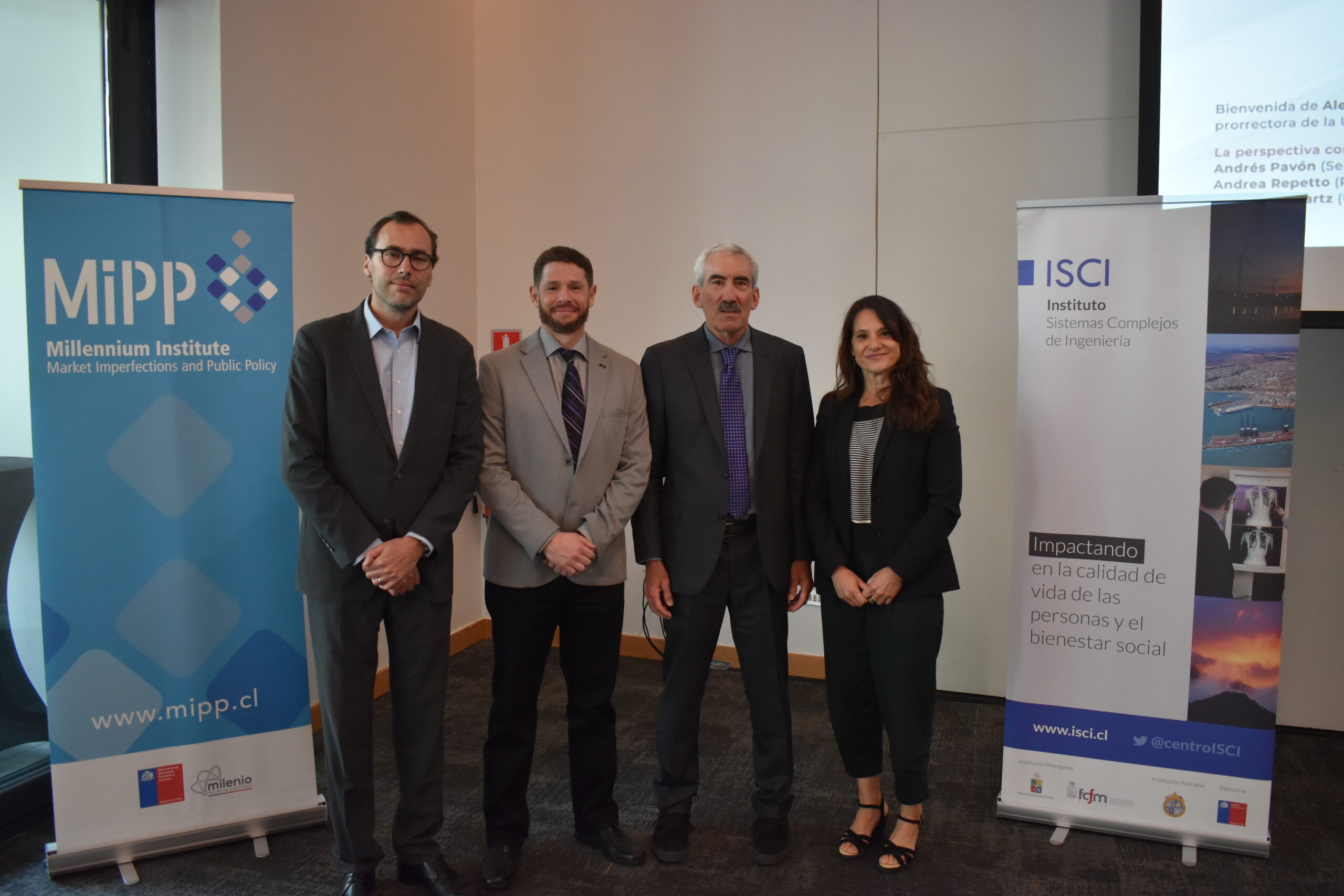
On November 26, the Almacruz Hotel in Santiago hosted the keynote talk “The Human Factor in Public Policy: Perspectives and Applications of Behavioral Economics”, an event organized by the Millennium Institute for Research on Market Imperfections and Public Policy (MIPP) and the Institute for Complex Engineering Systems (ISCI).
The event brought together representatives from key ministries, including Health, Economy, Finance, and Environment, as well as international organizations, universities, private companies, and non-profit organizations.
We were honored to welcome Marcela Munizaga, Vice Dean of the Faculty of Physical and Mathematical Sciences (FCFM) at the University of Chile, and Alejandra Mizala, Pro-Rector of the University of Chile, who inaugurated the event with a speech on the importance of incorporating behavioral economics into public policy design.
The event provided a platform to discuss concrete applications of behavioral economics across various fields, featuring insights from renowned academics:
Economist Andrea Repetto emphasized the need to redesign social programs to account for behavioral barriers that hinder access to benefits, such as the low uptake of subsidies. She proposed solutions focused on reducing social exclusion, improving perceptions of fairness, and fostering social cohesion.
Andrés Pavón presented research on mortgage credit portability, credit card statements, and cookie consent policies. He highlighted how collaboration between academia and regulators has been key to developing evidence-based policies that enable consumers to make more informed decisions.
Professor Daniel Schwartz shared large-scale behavioral economics studies addressing issues such as reducing credit card delinquency, decreasing missed medical appointments, increasing mammogram screenings, and evaluating food labeling policies. He showcased how behavioral economics tools can improve the design and assessment of interventions in both public and private sectors.
The event concluded with a keynote lecture by George Loewenstein, professor at Carnegie Mellon University and a global figure in behavioral economics. In his talk, “When Do People Benefit from Choice?”, he explored the benefits and risks of offering multiple options in contexts such as health insurance. Loewenstein argued that while choice can be empowering, it can also create confusion in highly complex situations. He proposed simplifying choice frameworks or delegating complex decisions to experts to ensure that individuals make better-informed and beneficial decisions.
The event underscored MIPP’s commitment to promoting applied research that directly impacts the formulation of effective and fair public policies. Since its establishment, MIPP has worked closely with public and private sector stakeholders to translate academic findings into practical solutions for social challenges.
This gathering reaffirmed the potential of behavioral economics to address complex problems through innovative solutions that incorporate the human factor. The interventions discussed provided concrete examples of how public policies can improve quality of life, ensure equity, and promote sustainable development.
Check out the images from the event below, and for future activities, visit the official website of the Millennium Institute MIPP.
MIPP Chile 2025